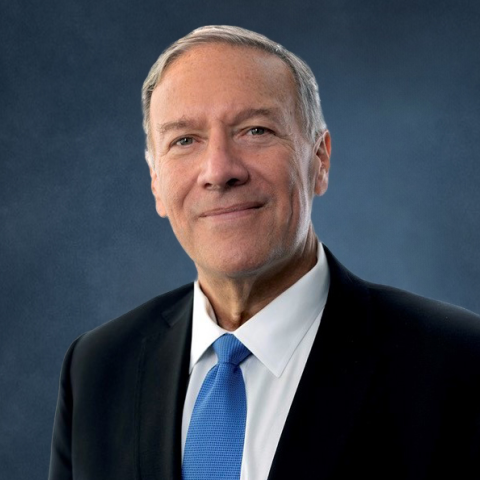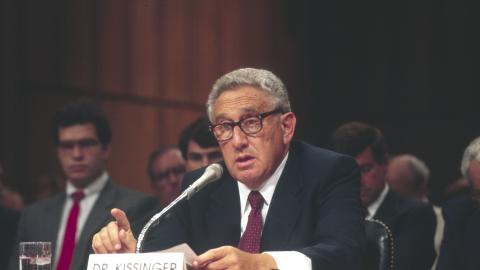Henry Kissinger passed away this week at the age of 100. His passing marks the loss of a great American and a model of service.
From the day he came to the United States as a teenager fleeing Nazi Germany, Dr. Kissinger dedicated his life to serving this great country and keeping America safe. Throughout his career in public service, Henry Kissinger left an indelible mark on America's history and the world.
Dr. Kissinger has often received criticism for his realist approach to politics, yet Kissinger’s critics misunderstand his essential character: He was a man who believed deeply in America and our way of life. He understood that America is great, that America is good, and that America is exceptional. And that is why he was so successful as America’s top diplomat.
Henry Kissinger’s belief in American greatness was grounded in two fundamental recognitions: That the American economy was the most dynamic and innovative in the world, and that American military power had no equal.
Admirably, Kissinger used these tools of greatness to accomplish truly good outcomes for America. His diplomatic efforts following the Yom Kippur War resulted in a landmark shift in America’s approach to the Jewish nation state in favor of Israel – a shift that has remained today and has made both America and the Middle East safer. His work to negotiate the first arms-limitations talks between the United States and Russia was equally important both in his time and future decades. Like the rest of the work throughout his career in public service, these efforts were spurred on not by the amoral desire to acquire and wield power, but rather by the genuine desire to contribute to the ordering of a world in which the United States, and all that it stood for, would be secure and prosperous.
So long as he made progress toward this objective, Dr. Kissinger was willing to be called every bad name in the book by his critics. For this commitment, we should remember him as a great American.
Crucially, at the core of Henry Kissinger’s worldview was also his unshakeable belief that America was exceptional. He understood America’s inherent promise and cherished our foundational values, all the more important to him given his own family’s flight from Nazi Germany when he was just 15 years old, as well as the experience he gained serving in the U.S. Army just five years later – including the liberation of the Nazi concentration camp at Ahrlem.
Kissinger’s recollections of his early years in the United States time reflect that his appreciation for America was grounded in his love for the unique character of the American people: “I always remembered the thrill when I first walked the streets of New York City. Seeing a group of boys, I began to cross to the other side to avoid being beaten up. And then I remembered where I was.”
He was in America, a place he described as “a dream, an incredible place where tolerance was natural and personal freedom unchallenged.” It is impossible to understand Dr. Kissinger’s work in service to America without first understanding his deep appreciation for the United States, his respect for its principles, and his love for the American people. I pray that his reality remains ours for years to come.
Dr. Kissinger’s love of the United States and his motivation to serve it was evident even in his final years. At the age of 96, he made the trip back to his old stomping grounds at Foggy Bottom to headline the Department of State’s 230th Anniversary celebration during my tenure as Secretary of State. Even more importantly, he graciously offered advice to me on countless occasions. He was always supportive and consistently demonstrated a remarkable command of the issues facing America abroad; his wisdom made me better and more prepared after every one of our conversations. I will always be grateful for his advice and help.
Henry Kissinger realized both the enormous importance of our country and the threats to its existence. His realist approach to the world was not devoid of morality; instead, it was taken in service to a much higher good, the good to which he firmly believed the United States was dedicated. In the face of the challenges that beset America today, our greatest hope must be that our leaders act with the same devotion to America’s foundational principles that Henry Kissinger displayed during his life.

















